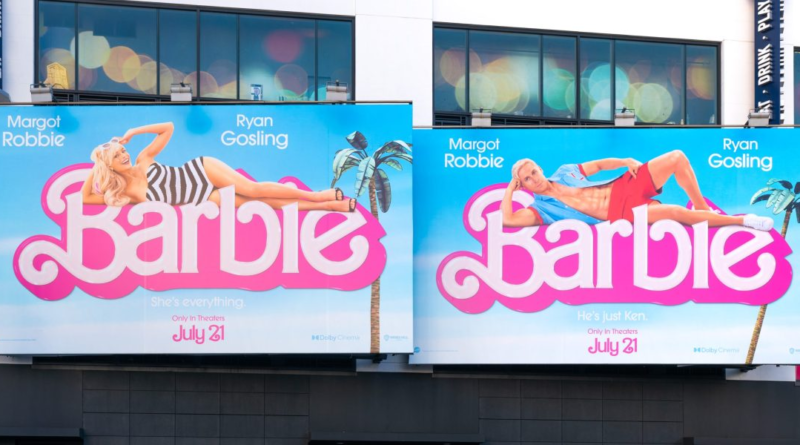Even with this weekend's ‘Barbenheimer’ premieres, movie theaters are struggling—and the Hollywood strikes risk making things worse
As buzz builds into the premieres of Barbie and Oppenheimer, some on Wall Street are doubting whether the films will be enough to power further gains in movie-theater stocks as a strike by Hollywood writers and actors clouds the outlook for the industry.
JPMorgan Chase & Co. downgraded its recommendation on Cinemark Holdings Inc. this week, saying the actors’ walkout limits visibility into the film supply. Analyst David Karnovsky noted that the strike has already halted production for several movies slated for the second half of next year.
“Absent a resolution, we expect the strike will remain an overhang to Cinemark shares and limit upside regardless of whether the box office outperforms near term,” Karnovsky wrote in a July 19 note to clients.
A rally in theater stocks to begin the year, driven partly by the success of April’s The Super Mario Bros. Movie debut, has cooled amid a lackluster summer movie season. Last weekend’s premiere of the latest installment in the Mission: Impossible franchise fell short of projections, further stoking fears for the sector. Cinemark, AMC Entertainment Holdings Inc., Imax Corp. and Marcus Corp. have all trailed the S&P 500 Index since the start of May.
Cinemark, Marcus and Imax slipped on Friday, while AMC rose.
Now, a strike by writers and actors is threatening to take the shine off what is expected to be one of the busiest weekends for cinemas since the pandemic onset.
Barbie took in a strong $22.3 million in ticket sales from preview screenings in theaters, while Oppenheimer brought in $10.5 million in Thursday evening previews. AMC Chief Executive Officer Adam Aron posted on Twitter on Friday that more than 60,000 AMC Stubs members have booked Barbie and Oppenheimer on the same day, and that would be triple the number from two weeks ago.
Bloomberg Intelligence analysts, who use Boxoffice Pro data in their analysis, recently lowered predictions for the theater industry’s revenue to about $8.9 billion this year due partly to uncertainty created by the simultaneous strikes. That’s down roughly 2% from an early June peak.
The Screen Actors Guild announced a walkout last week after failing to reach a new labor agreement with the Alliance of Motion Picture & Television Producers. The Writers Guild of America, meanwhile, has been on strike since May. It marks the first time Hollywood writers and actors have been on strike at the same time in six decades.
Theater operators as well as media companies including Warner Bros. Discovery Inc., Paramount Global and Walt Disney Co., slumped on July 14, the first full trading session after the move by Hollywood actors.
The simultaneous strikes are the latest blow to the theater industry, which is still trying to recover from the pandemic.
Craig Huber, founder and managing director at Huber Research Partners LLC said both sides are “playing with fire” given the industry’s fragility.
Cinemark and Marcus shares remain down significantly from pre-pandemic levels. Imax has largely recovered as audiences have shown a willingness to pay up for a more immersive experience. AMC, meanwhile, has been volatile since attracting the interest of retail traders in 2021.
Huber warns that film and television studios run the risk of turning away viewership they may never get back as consumers flock to streaming services like Netflix Inc. that have “banked up” enough content to lean on at this stage.
Netflix was the first company to confront the topic when it reported quarterly earnings this week. The streaming giant raised its annual forecast for free cash flow as a result of the strikes, which have shuttered production and cut spending, though it declined to address how they would impact the company’s output of new programming.
To Daiwa Capital Markets America Inc. and others on Wall Street, the duration of the strikes will ultimately determine the magnitude of their impact on media companies.
Given the strikes cover nascent topics like compensation from streaming and artificial intelligence, “we would not be surprised if these dual strikes continue longer than most anticipate,” Daiwa analyst Jonathan Kees wrote in a note.


